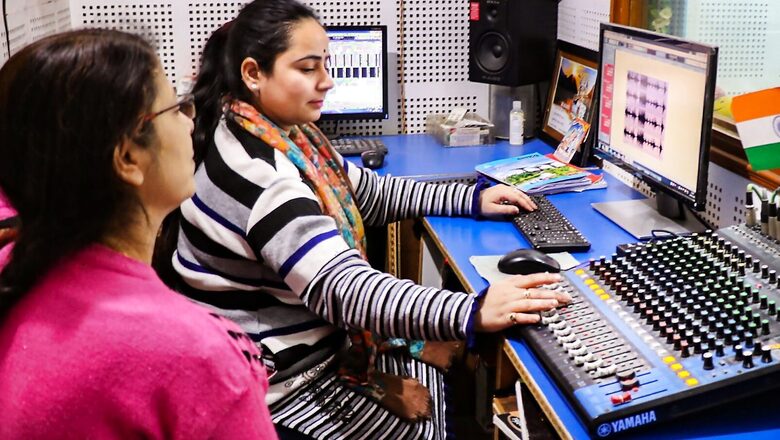
views
India is fast advancing into the digital space. This goes on to state that there is a growing number of software testing professionals in India. Before we start answering the question ‘why software testing is a good career choice for every aspiring programmer?’, we will delve into understanding the importance of the field at the current time.
Software forms the backbone of every routine ongoing today. It upholds critical data that could prohibit usual processes if it malfunctions. Hence it becomes quintessential to test the software to check for bugs and runtime errors before the software launches in the market.
Job profile
The profile of a software testing analyst is fulfilling and challenging in more than one way. The profile entails the following responsibilities
• Understand the use and purpose of the software
• Run tests to ensure the software runs seamlessly in different use-case scenarios
• Analyse test reports and get a clearer understanding of the errors and bugs prohibiting the seamless performance of the software while on the floor
• Run a tooth-comb through all the other aspects of the software, including design, and send out a detailed report concerning the same to the design team
• Come to terms with the expected requirements from the clients
• Participate in reviews and being able to pinpoint problem areas in every aspect to ensure the seamless running of the software.
Eligibility Criteria
The criteria for becoming a software testing analyst include the following:
1. BE and BTech (any streams), BCA and MCA, ENTC.
2. BSc and MSc (IT, telecom, electrical, electronics, communications)
3. Experienced learners with 1 to 3 years of IT / ISTQB certified non-IT working professionals with valid experience certificates.
4. One must be able to communicate and know the English language.
Skills required
One must be armed with a combination of tech and non-tech skills to excel in the field of software testing.
Some of the tech skills include:
1. Understanding Database / SQL. One needs to understand how data is stored. This is why data requires validation, for which we use simple and complex SQL to ensure that data is fittingly stored in the backend.
2. A professional must have a deep insight into some well-known and lesser-known yet effective test management, defect tracking, and automation tools. Several tools are available in the market a software testing analyst should be able to comprehend the use case of each software and apply the same fittingly.
3. Knowing programming languages like C#, JavaScript, and Perl will also help in carrying out professional responsibilities more efficiently.
4. Several web services and database application servers are deployed using Linux machines. Hence one needs to understand the Linux commands.
Some of the non-technical skills include:
Let us begin by understanding that a good software testing engineer is passionate about their profession. They take challenges in their stride and work towards eliminating bugs or run-time errors in the software.
They must be equipped with communication skills to explain the analysis of the report in comprehensive terms. They must learn how to employ the synergy of creative, analytical, and logical insights to make sure that all their efforts fall into place.
Career Path of a Software Testing Engineer
Considering the number of software that are being launched on a routine basis, there is terrific scope for growth for learners and emergent professionals who want to get involved in the profession of software testing.
a) QA analyst – Typically, a QA analyst starts as a fresher. They have little to no experience as software testing professionals and have just embarked on a learning journey. They learn by testing and evaluating new and existing software programs to understand the nuanced working capacity of the software.
B) QA analyst (senior) – A senior QA analyst comes with an experience of 2-3 years in the field of software testing.
C) QA team co-ordinator – The team coordinator’s profile ensures synchronization between professionals is well-maintained and delivers the analysis reports and smoothly-functioning, bug-free software on time.
D) The test manager – The test manager ensures the success of the programme and overlooks the tasks of the QA analysts and the team-co-ordinator. Their role involves verifying and evaluating tasks carried out by the QA analysts. A test manager usually comes with 8-11 years of experience.
Salary Expectations
The average annual salary of a software testing professional in India is Rs.3.6 lacs per annum. The starting pay pack ranges anywhere from Rs.1.7 lacs per annum to Rs.7.8 lacs per annum. The range can go higher depending on the experience, scope of work, and the organization with which one is associated. The role and career path of a software testing professional can accelerate career advancements. Knowledge, insight, and experience are key to the domain.
— Written by Girish Singhania, CEO, EduBridge
Explore other career options with us: Career in Sound Designing, Sound Engineering | Sustainability Professional | Yoga & Naturopathy | Software Testing | Medical Coding | Cloud Developer & Cloud Architect | 3D Technology | Garment Technologist |AI & Robotics |Fashion Designing |Supply Chain Finance |Animal Welfare | Public Relations | Gaming Industry | Functional Nutrition | Market Research Analyst | Forensic Scientist |
Read all the Latest Education News here

















Comments
0 comment